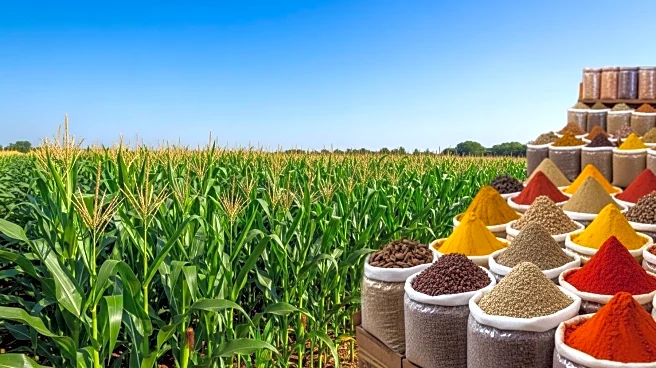What is the story about?
What's Happening?
Iowa Agriculture Secretary Mike Naig has announced new trade opportunities for Iowa farmers following a recent trade mission to India led by Governor Kim Reynolds. During the visit, Iowa signed a partnership with Maharashtra, a major Indian state, marking the first such agreement between Maharashtra and a U.S. state. The partnership aims to expand markets for Iowa's ethanol, soybean feed, and protein products. Naig emphasized the potential for Distillers Dried Grains with Solubles (DDGS) and soybean meal in India's livestock feed industry. The agreement comes amid global trade tensions, including recent U.S. tariffs on Indian goods. Despite these challenges, Naig expressed optimism about the partnership's potential to enhance trade relations and benefit Iowa's agricultural sector.
Why It's Important?
The partnership between Iowa and Maharashtra is significant as it opens new markets for Iowa's agricultural products, potentially boosting the state's economy. With India's growing middle class and increasing demand for protein, Iowa farmers could see increased demand for their products. This agreement also highlights the importance of international trade for U.S. agriculture, especially in light of global trade tensions. The collaboration could serve as a model for other states seeking to expand their international trade relationships, particularly in the agricultural sector. The focus on renewable fuels and food security aligns with global trends towards sustainable energy and food production.
What's Next?
Iowa plans to continue its global outreach with upcoming trade missions to Vietnam and Indonesia, aiming to further expand markets for its agricultural products. The ongoing negotiations with India will be crucial in solidifying the partnership and addressing any trade barriers. As the relationship with Maharashtra develops, Iowa farmers may see increased opportunities for exporting ethanol and protein products. The success of this partnership could encourage other U.S. states to pursue similar agreements, potentially leading to broader international trade collaborations.
















